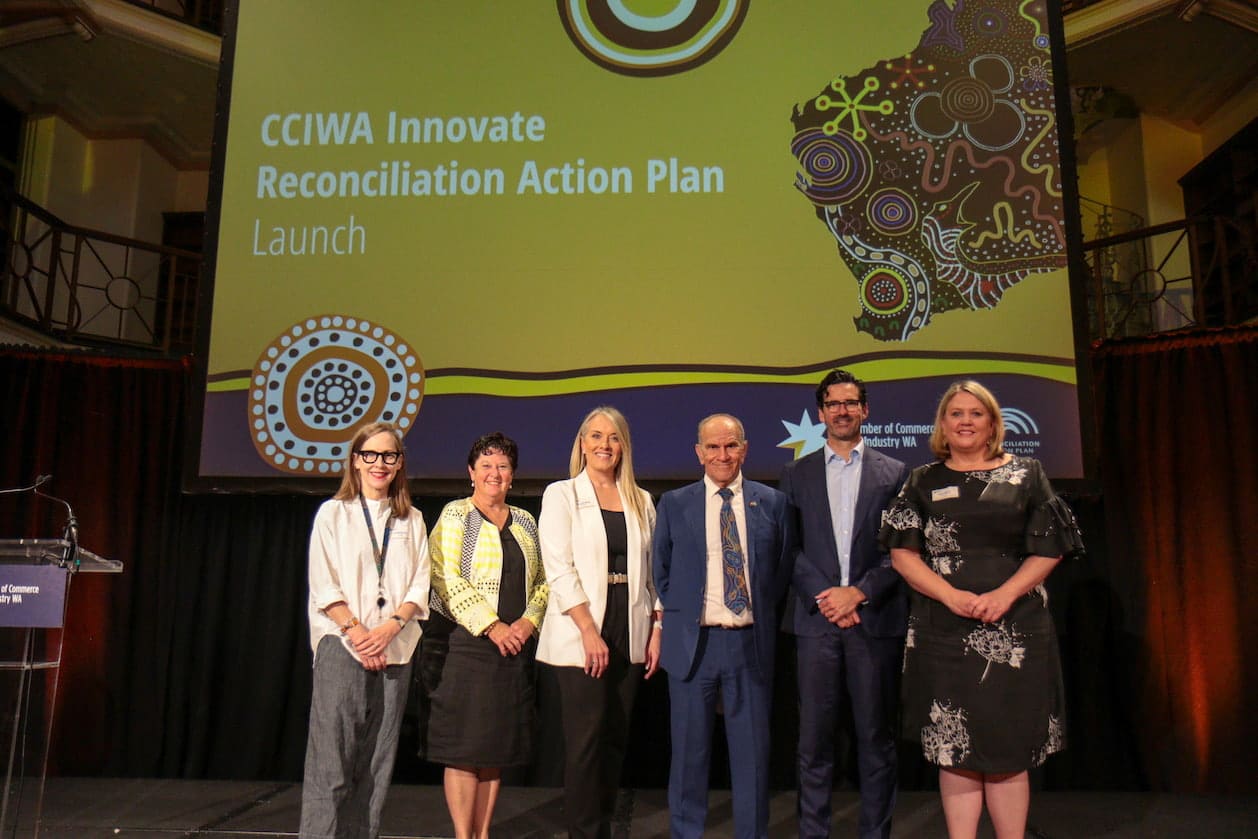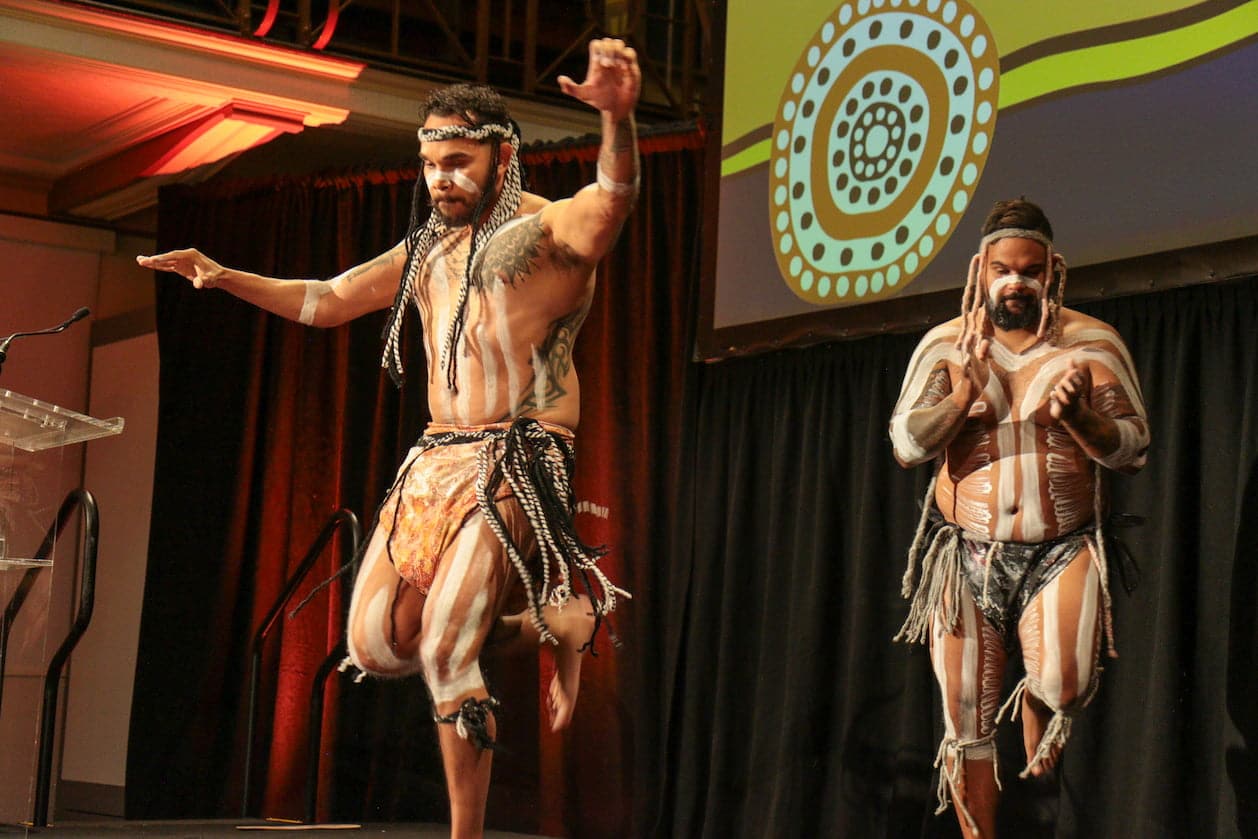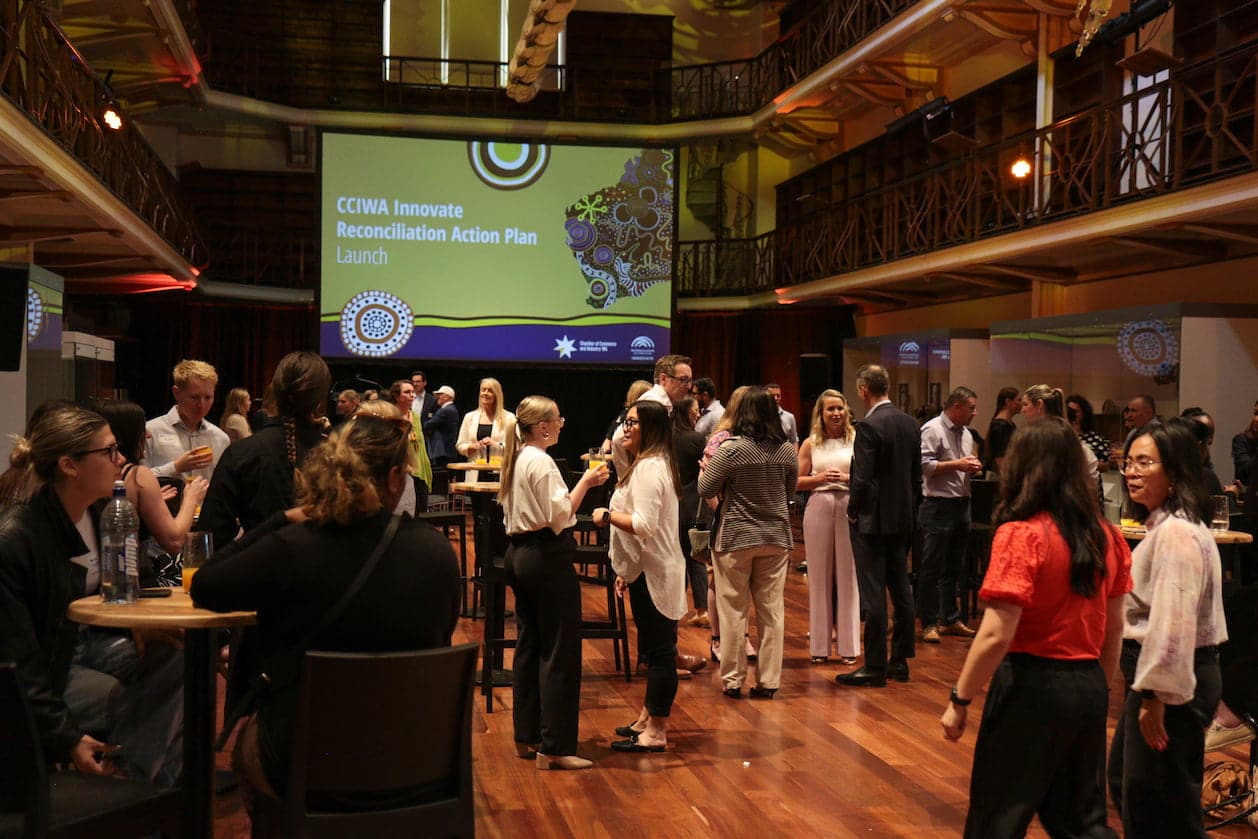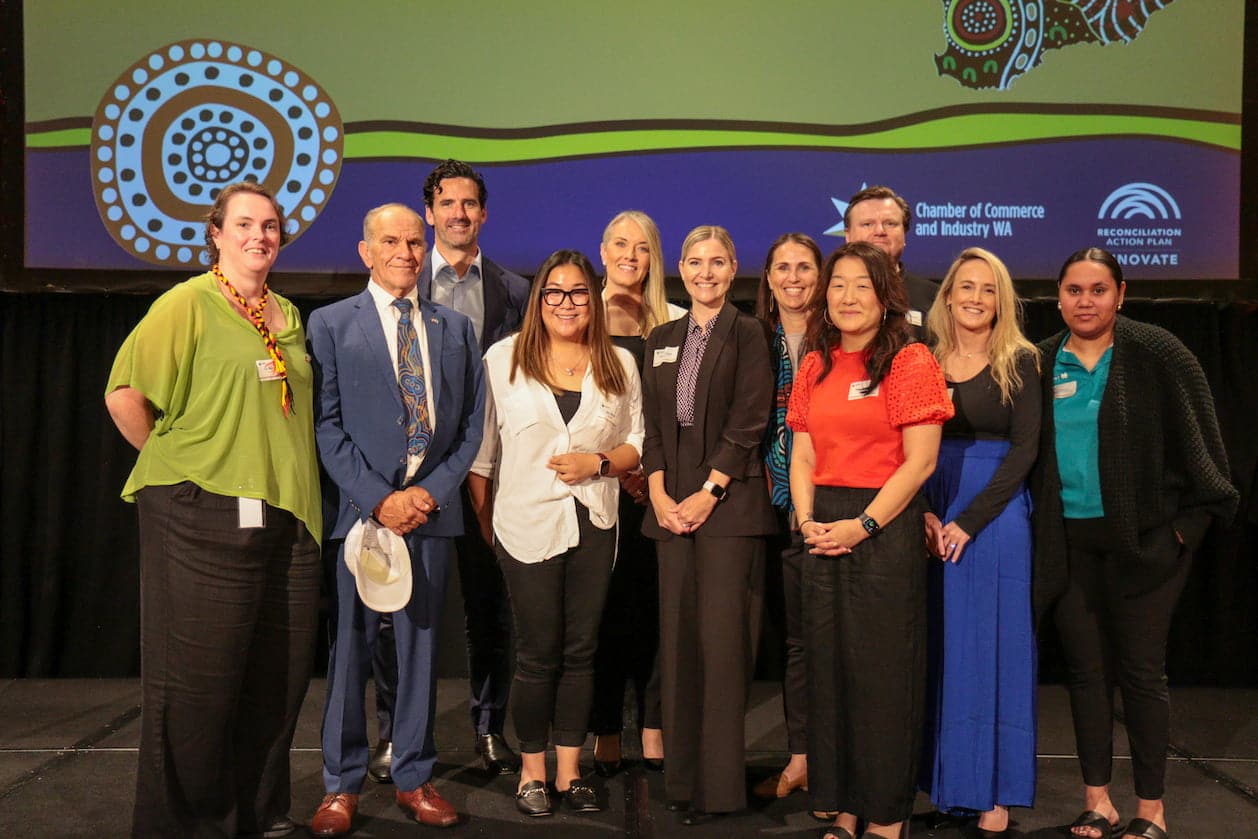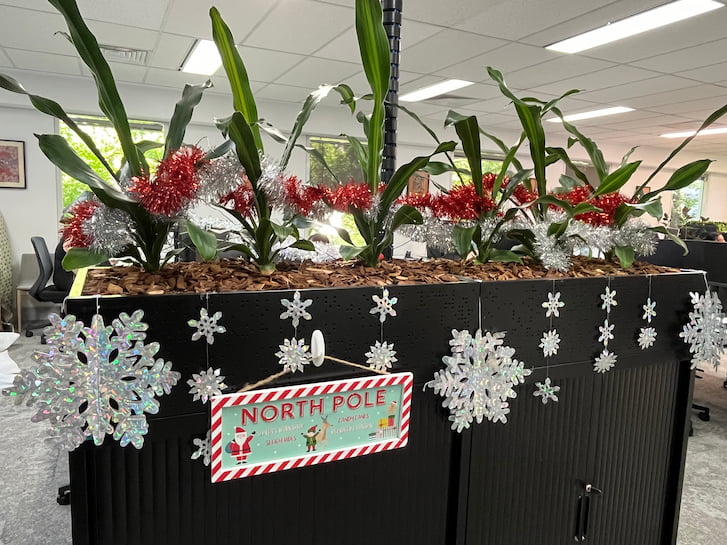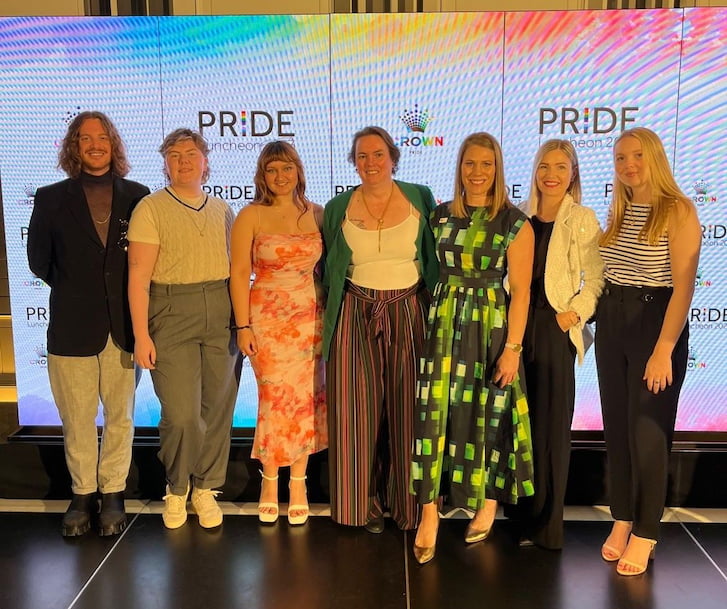CCIWA enshrined its commitment to reconciliation with the launch of its Innovate Reconciliation Action Plan (RAP) last week.
Held at the WA Museum Boola Bardip, the RAP was launched by CCIWA Vice President, Esme Bowen and CEO Chris Rodwell, and included presentations from Moodjar Consultancy Director Dr Leonard Collard and Reconciliation WA CEO Jody Nunn, with CCIWA’s Director of People and Culture, Tracy Al Saidi as MC.
- L-R: CCIWA Board Member Liz Macknay, Vice President Esme Bowen, People and Culture Director Tracy Al Saidi, Moodjar Consultancy Director Dr Leonard Collard, CCIWA CEO Chris Rodwell and Reconciliation WA CEO Judy Nunn.
- Ngalak Nidja gave a traditional dance performance.
“Our commitment to a Reconciliation Action Plan really is a line in the sand for our organisation – a clear, defined commitment with practical actions to help us achieve our vision of a modern, inclusive workplace,” Rodwell says.
As CCIWA reflects on its own history, dating back to 1890, he says “it’s critical we acknowledge that First Nations people have not been afforded the same rights and opportunities as other groups in our community”.
“It’s a commitment to champion economic equity and self-determination for First Nations people across our community,” Rodwell says.
CCIWA’s RAP makes a commitment to take a leading role to bridge the gap until there is no gap at all. The RAP ensures the voice CCIWA has provided for Aboriginal people through its Constitution has a genuine impact on its policy and work.
This includes improving employment outcomes for Aboriginal people, changing CCIWA’s procurement approach and immersing its people in cultural education and therefore, becoming better students of history and better observers of culture and the sacred link Aboriginal people have to Country.
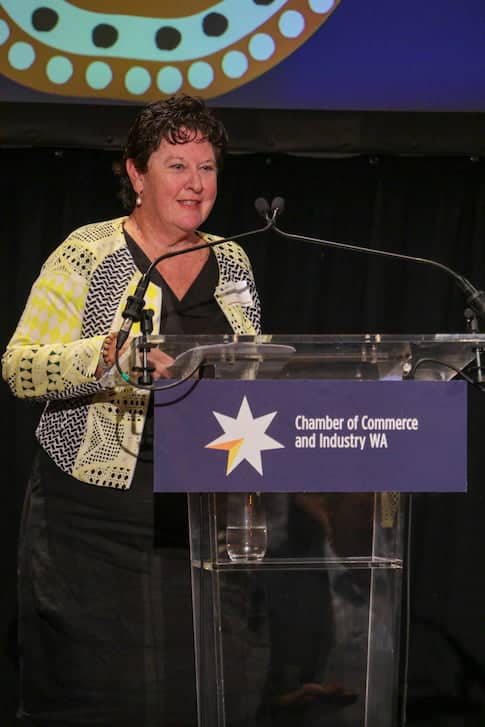
CCIWA Vice President Esme Bowen.
CCIWA Vice President Esme Bowen says WA’s business community has a legacy of instigating change which has largely been driven by relationships.
“Relationships drive reconciliation. By nurturing the relationship between Indigenous and non-Indigenous Australians, we build respect and opportunity,” she says.
“That’s why it is so important for CCIWA to lead by example when it comes to engaging with First Nations people.”
Reconciliation WA CEO Judy Nunn says the concept of reconciliation is evolving.
“There’s a new word in this space: we’re no longer doing reconciliation, we’re doing ‘reconciliACTION’,” she says.
Nunn says people need to take action to fulfil the words that are in RAPs, and relationships are at the heart of reconciliation.
“Reconciliation moves at the speed of trust, so those relationships [with First Nations people and communities] and respect are all powerful,” she says.
CCIWA’s Reconciliation Action Plan Artwork
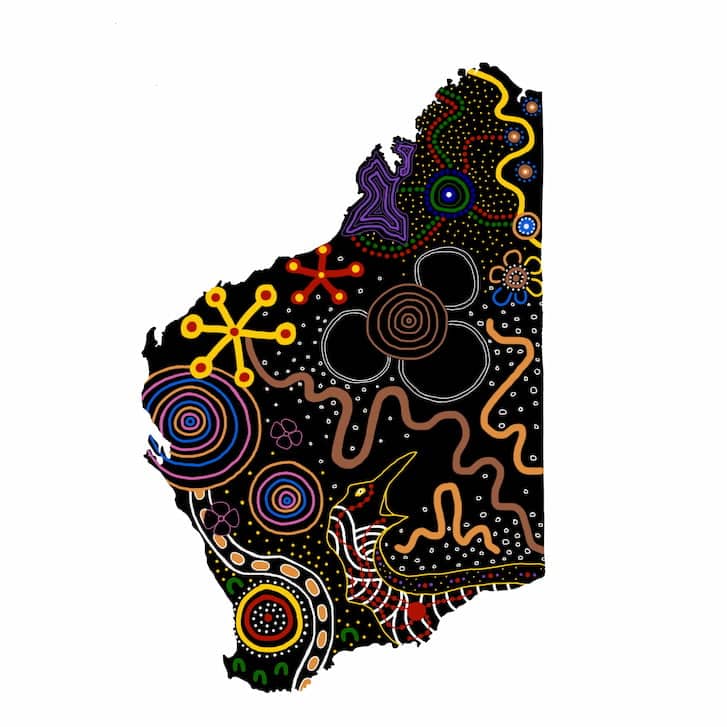
This traditional piece was created by Charlotte McVee and Tayla Larkins, who found their inspiration from their own perspectives and life experiences, WA Aboriginal communities more generally, and the role that CCIWA and Apprentice Support Australia (ASA) plays in supporting the business and broader community.
“The artwork has been named Moort Boodja – Moort meaning ‘family’ in Noongar and Boodja which means ‘land’,” Rodwell says.
“The artists say it captures the interconnections and relationships between Aboriginal and Torres Strait Islander communities.”
Indigenous contribution to WA economy
- CCIWA RAP working group with Dr Leonard Collard (second left) and CCIWA CEO Chris Rodwell (third left).
As well as performing the Welcome to Country, Collard shared insights on the economic contribution that Indigenous peoples have had on the State’s economy.
Collard says Aboriginal people have been at the forefront of evolving and developing the bedrock foundations of WA’s and Australia’s economy.
First Nations people were also instrumental in establishing WA’s international trade and agriculture industry.
“The Noongars were the first people to commodify out of this State to foreign economies. When the boats came, the first international trade occurred in the form of tourism,” he says.
“The biggest sheep economies so that were established in the Pilbara … our people took those white fellas with them and negotiated with the bosses up there set up the sheep and wool industry.
“So, every time we think about the role and contribution of Aborigines in the economic growth of this nation … when you read the historical record, Aborigines are marching hand-in-hand, shoulder-to-shoulder to prop up and support the new guys.”
Want to keep up to-date with the latest business news and advice? Become a CCIWA Member today and get access to exclusive information designed to help you do business better. Find out more here.







